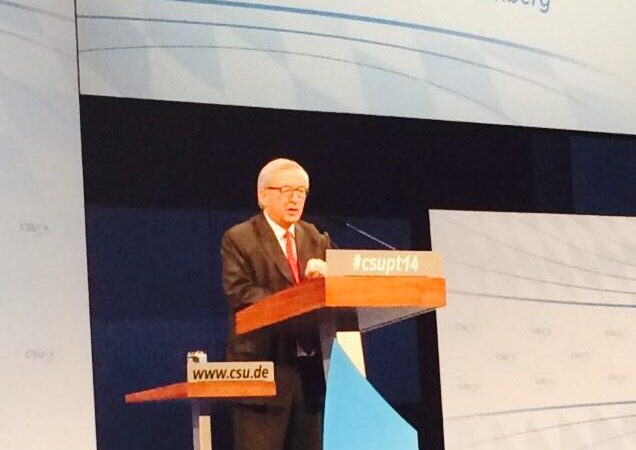Big on the big things, small on the small things – Brussels bullshit meaning ‘deregulation’

Back in 2013, José Manuel Barroso in his State of the European Union speech stated that the “EU needs to be big on big things and smaller on smaller things” (speech text here – phrase 3/4 of the way through).
Since then this phrase has become some sort of mantra for the EU’s centre right, and supposedly social democrat Vice President of the European Commission Timmermans has used similar vocabulary. The Bavarian CSU’s party congress happening today has been full of it:
.@JunckerEU beim @CSU Parteitag in Nürnberg: "Europa muss sich auf die großen Dinge konzentrieren" #csupt14 pic.twitter.com/rIwYrLCCBn
— Mina Andreeva (@Mina_Andreeva) December 12, 2014
Bavarian Minister-European Affairs Dr.Merk: Wir brauchen mehr Europa im Großen und weniger Europa im Kleinen. I agree completely! #csupt14
— Eva Maydell (Paunova) (@EvaMaydell) December 12, 2014
While the phrase sounds pleasant enough, the problem is this: we have no common definition of what is a small thing, and what is a big thing.
Take the widely reported decision by the very same Juncker and Timmermans to axe legal proposals on air quality and the circular economy. Air pollution causes 58000 400000 premature deaths in the EU each year*. So is air quality a “small thing”? I think not. And air quality cannot be regulated at a national level as pollutants do not respect borders.
So it strikes me that the big on the big things, small on the small things phrase is just a neat shorthand for deregulation. Think about air pollution the next time you hear the deceitful phrase uttered.
* Updated 1938 – a reader has e-mailed me, pointing out an error in my figures. Air pollution kills 400000 prematurely in the EU each year, and the proposal would reduce this by 58000. Details on the Commission’s website here.
Jon, it even has antecedents in Santer’s ‘Agir moins, agir mieux’ which sort of says the same thing. I am not sure it necessarily means ‘deregulation’ as more ‘Let’s agree priorities around issues on which we can make a difference through EU action’– which in turn begs a lot of questions and demands some rigorous tests to prove. Maybe the greater use of impact assessments might help.